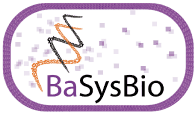
University Hospital of Groningen (AZG)
 |
Location : Groningen / NL |
| Leader : N/A | |
| Website : www.umcg.nl/azg/nl/english/azg/ |
- Short description of the institution:
The University Medical Centre Groningen is one of the largest hospitals in the Netherlands in which approximately 29.000 patients are admitted per year. Patients receive basic care as well as highly specialist top clinical and top reference care, including organ transplants, complex neurosurgery, neonatology, clinical genetics, in vitro fertilization, pediatric oncology, renal dialysis and traumatology. All medical specialties are represented, as well as education programs for all medical disciplines. Three Graduate Schools are responsible for research-oriented Master and PhD programs. Research is a top priority at UMCG involving ~500 employees. Major research programmes are focused on chronic diseases, the human brain, quality of life and biomaterials.
- Description of the different units involved in the project/ Competences of the team in the project:
The Department of Medical Microbiology studies the role of microbes in human health and disease. Research in the Molecular Bacteriology group is aimed at the identification of critical interactions between bacteria and their human host and, more specifically, the identification of novel targets for anti-infectives and vaccines in Gram-positive pathogens. Major research topics are (i) functional genomics of protein sorting and secretion in Bacillus and Staphylococcus species, (ii) analysis of the bacterial responses to general infection and protein secretion stress, and (iii) development of novel tools for the molecular detection of bacteria in clinical settings and in relation to hygiene.
- Key persons involved in BaSysBio:
Pr. Dr. Jan Maarten van Dijl
Professor of Molecular Bacteriology. His research has involved the analysis of protein secretion in B. subtilis , and quality control mechanisms in bacilli and yeast mitochondria. Important outcomes of this research include: (i) identification of the first known signal peptidase of a Gram-positive bacterium, (ii) functional analysis of the protein secretion machinery of B. subtilis , (iii) in-depth analysis of the B. subtilis secretome, (iv) identification of essential Bacillus genes, and (v) identification of chaperone-like activities of ATP-dependent proteases in mitochondria of yeast. J.M. van Dijl is involved in the coordination and execution of several EU-funded projects on protein transport and quality control in bacteria.
Dr. Gjalt Welling and Dr. Hermie J.M. Harmsen are both Assistant Professor of Medical Microbiology. They have a wide experience in the application of fluorescence microscopy for research on the microbial flora of the human gut, as well as the microbial colonization of surfaces in a clinical setting and in relation to hygiene of Spacecrafts. Especially relevant for the BaSysBio project is their expertise in the establishment of a high-throughput microscopy unit for automated fluorescent in situ hybridization analyses (FISH), and in-house-development of image analysis software.
Dr. Jean-Yves F. Dubois is a molecular biologist, specialised in molecular phylogeny. Important outcomes of this research include: (i) identification of first known gene duplications of type I ribonucleases in Rattus species and the elephant, and (ii) molecular characterisation of cytoplasmic and membrane-bound redox proteins in protein secretion and competence development in B. subtilis.
Show all the institutions